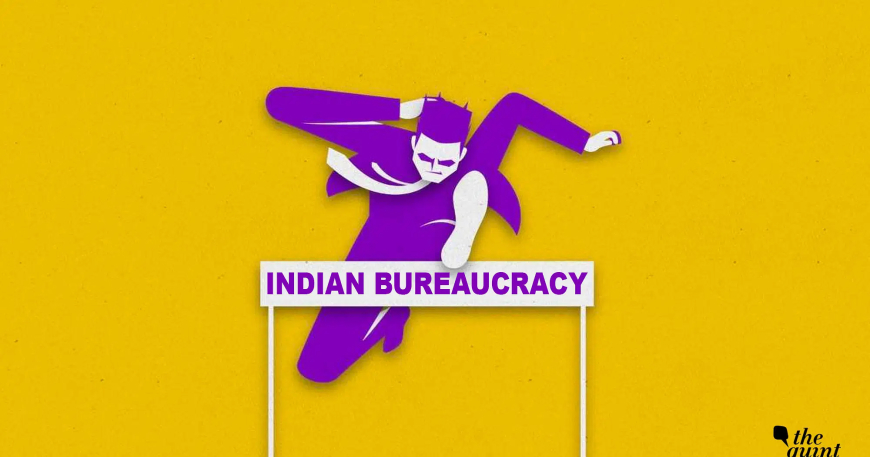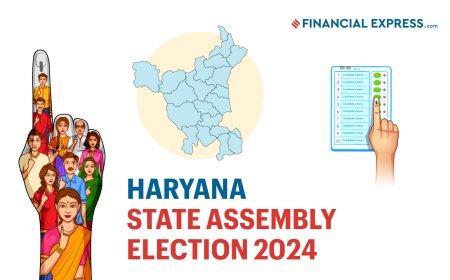A Beginner’s Guide to Opening a Business in India: Spoiler: You’ll Need 27 Licenses, 42 Signatures, and 1 Bribe
Starting a business in India? Brace yourself for a wild ride through bureaucracy with endless licenses, signatures, and paperwork. This quirky guide takes you through the real (and hilarious) challenges of launching a business in India.

Starting a business in India? Well, buckle up, because you're about to embark on a thrilling (and by "thrilling," we mean soul-crushing) journey through the country's labyrinthine bureaucratic system. It’s not enough to just have a brilliant idea—you’ll need a mountain of paperwork, an army of signatures, and, of course, a touch of luck to survive the bureaucratic hurdles. Here’s a step-by-step guide to opening your business in India:
Step 1: Pick a Business Idea (And Then Realize You Need to Validate It)
So you’ve come up with the perfect business idea—something revolutionary, something that will change the world, or at least make you a few lakhs. But before you can even think about starting, you’ll need to first get a stamp of approval from multiple government departments. No, really. Before you even start thinking about financing or staffing, ensure that your idea is not in conflict with any existing laws (good luck with that!).
Step 2: Register Your Business Entity (Don’t Forget Your 27 Licenses)
Now, you’re ready to get the paperwork going. You’ll need to decide whether you’re setting up as a sole proprietorship, a partnership, or a private limited company. Great, right? Not so fast! Each type of business comes with its own set of required licenses. You’ll need licenses from the GST department, Shops and Establishment Act, the Reserve Bank of India (RBI), the Ministry of Corporate Affairs (MCA), and let’s not forget the fire department, the health department, the labor department, and, of course, your local municipality. And you can’t forget the state-level licenses—each one is a treasure hunt, and they all have different forms, processes, and fees.
But wait, there’s more! You'll need to provide documentation for each of these entities: proof of address, proof of identity, documents verifying your company’s nature, a police clearance certificate (because, you know, you’re planning on running a legitimate business, not a crime syndicate), and more. Pro tip: Keep a fire extinguisher handy for when your pile of paperwork catches fire from sheer volume.
Step 3: Obtain Signatures—And Lots of Them
Now that you’ve gathered all the licenses, you’ll need to get signatures. Lots of signatures. This is the part where you’ll need to track down a whole slew of officials who will review your paperwork, sign here, sign there, and then send you on your way. Of course, you can’t expect them to do this for free. Some may even ask for a small “token of appreciation” (read: bribe), to speed up the process.
Be prepared for the following: The signature you need might be at an office across the city, or, if you’re particularly unlucky, on the other side of the country. You’ll spend hours navigating traffic, waiting in line, and probably becoming well-acquainted with the local chaiwala.
Step 4: Register for Taxes (Because the Government Loves a Good Tax)
Next, you’ll need to register for taxes, and let’s face it—taxation in India is a bit of a sport. GST registration? Check. Income tax registration? Check. Professional tax registration? Don’t forget it! And let’s not forget the central excise tax or the labor welfare fund contributions. If you’re setting up a factory, there’s also the Factory Act—because, of course, building something that doesn’t kill people requires a ton of paperwork.
Also, while you’re at it, get ready to navigate the maze that is tax filing. You’ll need to learn how to file taxes online, keep records of all invoices, and understand the various exemptions. If you make a mistake—good luck. You’ll spend more time in the audit office than in your actual office.
Step 5: Open a Bank Account (And Prepare for More Paperwork)
Once you've survived the paperwork jungle, you’ll need to open a business bank account. The process will involve more paperwork than you ever thought possible—proof of business address, tax identification numbers, KYC (Know Your Customer) forms, and more signatures.
After hours of waiting in long lines, you might finally get your account opened, only for the bank to inform you that your application is still under review. Don't be surprised if you’re told to come back the next day (or the day after that, or the day after that) because there’s always "some issue with the system."
Step 6: Hire Employees (Get Ready to Be Their Personal HR Manager)
Hiring employees in India comes with its own set of delightful challenges. Not only do you need to follow labor laws (which change frequently), but you’ll also need to register employees with the Provident Fund (PF), Employee State Insurance (ESI), and other government-mandated schemes. You’ll need to issue payslips that comply with the latest rules and fill out forms you didn’t know existed.
And don’t forget the task of keeping track of employee leaves, holidays, and maintaining records that will eventually land you in front of the labor department for a surprise audit.
Step 7: The Grand Opening (But Don’t Forget the Last-Minute Hurdles)
Finally, after weeks (or months) of paperwork and getting your signatures, licenses, and registrations in place, you’re ready for the grand opening! But, plot twist—just before the ribbon is cut, you’ll realize there’s a final regulation you missed, or a form that needs resubmitting. Be prepared for one last sprint to the nearest government office for the final stamp of approval.
Conclusion: Is It Worth It?
So, is starting a business in India worth the struggle? Absolutely. Despite all the red tape, long lines, and questionable "facilitation fees," India offers a massive market with huge growth potential for entrepreneurs. But for anyone brave enough to take the plunge, remember: it’s not just about having a great idea—it’s about having an indomitable spirit to survive the bureaucratic rollercoaster.
If you manage to open your business without going mad, congratulations—you’ve successfully navigated the jungle that is India’s startup ecosystem. You’ve earned every inch of that paperwork-filled victory!
What's Your Reaction?




















































